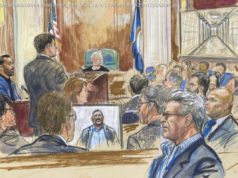Get up to speed for the 91st Academy Awards with a roundup of our best stories.
The Oscars are usually rather predictable. The red carpet is replete with glamorous stars and cringeworthy sound bites; the ceremony starts off with a speech that’s either inspiring or dull, and it may or may not include an ill-advised musical number. Favorites get snubbed or rewarded for their cinematic accomplishments, and teary speeches drag on too long or get cut off too soon.
This year, however, the Academy of Motion Picture Arts and Sciences has paved its path to the big night with so much controversy that the ceremony will, at the very least, offer the unexpected. Before you tune in on Sunday, catch up on the highs and lows of the past year in film with this roundup of The Atlantic’s best Oscars-related coverage.
For the first time in 30 years, the Oscars will go hostless. The Academy’s original pick, the comedian Kevin Hart, stepped down amid heavy criticism for a slew of homophobic tweets he had written in the past. (In a televised interview with Ellen DeGeneres, he claimed to have already apologized for the tweets, though reporters have been unable to track those apologies down.) In lieu of a host, the show will be guided by a group of presenters that includes Angela Bassett, Chadwick Boseman, Laura Dern, Samuel L. Jackson, Melissa McCarthy, Allison Janney, Awkwafina, and Tessa Thompson, among others.
Plans for the ceremony have also been revised a dizzying number of times. In August, the Academy announced that it would be giving an award for “outstanding achievement in popular film” in addition to the usual Best Picture trophy. The decision was swiftly denounced by critics, including The Atlantic’s David Sims, who wrote that the change would shunt “genuinely impressive works of art into a category defined primarily by commercialism.” The Academy scrapped the new category a month later.
Then there is the issue of time. To keep the lengthy ceremony to a maximum of three hours—last year’s ran for approximately four—the Academy reportedly planned to allow performances for only two of the five nominees for Best Original Song. In addition, the awards for Best Cinematography, Best Film Editing, Best Live Action Short Film, and Best Makeup and Hairstyling would be relegated to commercial breaks. Both of these changes, however, were met with backlash and have since been reversed. Producers announced in January that artists would be invited to perform condensed, 90-second versions of all five songs. And the technical categories are safe, after numerous high-profile cinematographers, directors, and actors signed an open letter that called their exclusion from the telecast “nothing less than an insult to those of us who have devoted our lives and passions to our chosen profession.”
That’s not to mention the controversies surrounding two of the Best Picture nominations—but we’ll get to that later. All the decisions that have been announced (and then retracted) thus far point to an Academy that is struggling to course-correct amid its show’s dipping ratings. It’s also willing, as Sims writes, to diminish its own stature in the process.
January’s Golden Globe Awards upended the Oscars race when the best film prizes of the night went to Bohemian Rhapsody and Green Book, while the critical darling A Star is Born was left with only one trophy, for Best Original Song, out of its five nominations.






